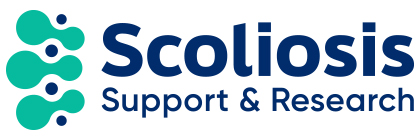Lead Researcher:
Dr Lucy Bray
Institution:
Edgehill University
Year:
2019
Summary
This proposal was developed through consultation with young people (n=8) who have had AIS and parents of AIS children (n=2). Our PPI work and literature review highlight that the proposed CFG would be welcomed in supporting young people to gain information from their specialist clinician. The CFG will be a simple tool which young people can use, along with their parents, before and during their consultation. This study will be conducted in 2 phases and will provide the foundations (a developed CFG and feasibility study of methods) for a larger grant application to assess the influence of the CFG on clinical practice.
Why did we do the project?
Adolescent Idiopathic Scoliosis (AIS) is a curvature of the spine, often diagnosed between the ages of 7 and 18 years. AIS affects from 3 to 4 young people in every 1000. The condition often gets worse over time and can lead to health issues. AIS is usually treated by bracing or surgery.
Families report that an appointment with the specialist spinal team is the main way they find out information about AIS. However, young people and their parents can have low levels of knowledge and understanding of scoliosis.
What did we do?
Workshops were held separately with 10 young people (aged 14-16 years) with
scoliosis and 11 parents.
The workshops used activities to explore what it was like coming to spinal clinic and create the content and format of the Coming to Spinal Clinic materials.
What did we find out?
Many of the young people and parents had felt anxious and worried when they had come to spinal clinic for their first appointment.
Many of the young people and parents had struggled to ask questions and gain information during their spinal clinic appointment.
The young people thought colourful and engaging information in the form of an animation and a paper ‘prep sheet’ would help young people to prepare for a clinic appointment.
Parents were keen to have their own information leaflet with key information to help them support their child.
Key messages for the resource included; what would happen when coming to spinal clinic, making notes to help ask questions in clinic, important things to ask when at clinic, the importance of talking about feelings and being careful when searching for information on the internet.
The ‘Coming to Spinal Clinic’ Resource
We worked with MisterMunro (https://www.mistermunro.co.uk/), to develop an animation and a prep sheet for young people coming to spinal clinic and a ‘top tips’ information sheet for parent/carers. The ‘Coming to Spinal Clinic’ resource is freely available and accessible to watch and download on https://www.edgehill.ac.uk/comingtospinalclinic/
Project Team; Professor Lucy Bray, Professor Bernie Carter, Dr Catherine Wilkinson, Dr Candice Satchwell, Mr Colin Bruce, Mr Neil Davidson
